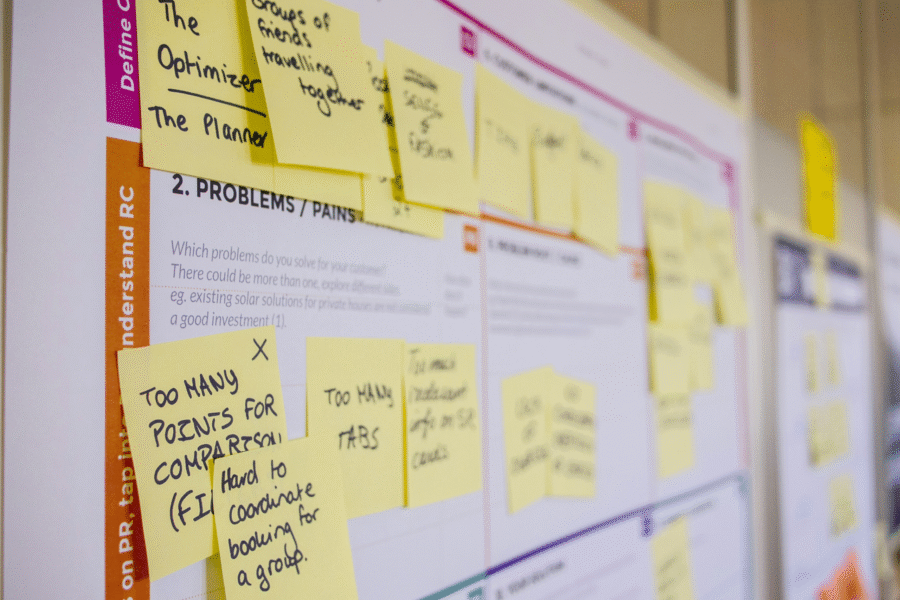In recent years, the global shift towards renewable energy has gained significant momentum, and the UK has emerged as a frontrunner in this green revolution. As the world grapples with the urgent need to reduce carbon emissions and combat climate change, renewable energy projects have taken centre stage, offering a sustainable solution to power our future. Harnessing nature’s power, the UK has witnessed a remarkable surge in wind, solar, and hydroelectric projects that are transforming the energy landscape. This growing importance of renewable energy projects in the UK not only promises a cleaner and greener future but also brings about numerous economic and social benefits. From job creation to reduced reliance on fossil fuels, these projects are revolutionizing the way we generate and consume energy. In this Proteus blog, we will explore the world of renewable energy and look at the steps the UK is making towards a more sustainable and environmentally friendly future.
The Importance of Renewable Energy in Combating Climate Change
Renewable energy plays a crucial role in combating climate change, which is one of the greatest challenges facing humanity today. Fossil fuels, such as coal and oil, release carbon dioxide and other greenhouse gases when burned, leading to the accumulation of heat in the atmosphere. This, in turn, contributes to global warming and the associated negative impacts, including rising sea levels, extreme weather events, and the loss of biodiversity.
Renewable energy sources, on the other hand, produce little to no greenhouse gas emissions during operation, making them a cleaner alternative to fossil fuels. By harnessing the power of wind, sunlight, and water, the UK can reduce its carbon footprint and mitigate the effects of climate change. Transitioning to renewable energy is not only an environmental imperative but also a moral obligation to future generations.
The UK recognizes the urgency of the climate crisis and has set ambitious targets to reduce greenhouse gas emissions. One of the key strategies for achieving these targets is the rapid expansion of renewable energy projects across the country.
Current State of Renewable Energy Projects in the UK
The UK has made significant progress in developing renewable energy projects, positioning itself as a leader in the global renewable energy sector. According to recent statistics, renewable energy accounted for a record-breaking 47% of the UK’s electricity generation in the first quarter of 2021. This achievement can be attributed to the substantial growth in wind, solar, and hydroelectric installations.
Wind power has been a driving force behind the UK’s renewable energy revolution. The country boasts some of the world’s largest offshore wind farms, utilizing the strong winds that sweep across its coastlines. These wind farms not only contribute to the generation of clean energy but also create employment opportunities and support local economies.
Solar power has also witnessed significant growth in the UK. The falling costs of solar panels, coupled with favorable government incentives, have made solar energy an attractive option for businesses and homeowners alike. The installation of solar panels not only reduces carbon emissions but also helps households and businesses save on their energy bills.
Additionally, the UK has tapped into its vast potential for hydroelectric power generation. By harnessing the power of rivers and streams, hydroelectric projects contribute to the renewable energy mix and provide a reliable source of electricity.
Types of Renewable Energy Sources in the UK
The UK accesses a diverse range of renewable energy sources, which contribute to its energy mix and provide a sustainable alternative to fossil fuels. Here are some of the key renewable energy sources in the UK:
1. Wind Energy: The UK’s windy coastlines make it an ideal location for wind farms. Onshore and offshore wind turbines harness the power of the wind to generate electricity.
2. Solar Energy: The UK may not be known for its abundant sunshine, but solar panels can still generate significant amounts of electricity. Solar installations can be found on rooftops, solar farms, and commercial buildings.
3. Hydroelectric Power: The UK’s rivers and streams provide a source of renewable energy through hydroelectric power generation. Small-scale and large-scale hydroelectric projects contribute to the country’s renewable energy goals.
4. Biomass Energy: Biomass energy involves using organic matter, such as wood pellets and agricultural waste, to generate heat and electricity. Biomass power plants provide a renewable and sustainable alternative to fossil fuel-based energy generation.
5. Tidal Energy: The UK’s tidal range, particularly in areas such as the Severn Estuary and the Pentland Firth, offers great potential for tidal energy generation. Tidal turbines harness the power of the tides to produce electricity.
Advantages and Disadvantages of Renewable Energy Projects
Renewable energy projects offer numerous advantages over traditional fossil fuel-based energy generation. Here are some of the key benefits:
1. Environmental Benefits: Renewable energy sources produce little to no greenhouse gas emissions during operation, helping to mitigate climate change and reduce air pollution.
2. Energy Security: By diversifying the energy mix and reducing reliance on imported fossil fuels, renewable energy projects enhance energy security for the UK.
3. Job Creation: The growth of renewable energy projects creates employment opportunities across various sectors, including manufacturing, construction, and maintenance.
4. Economic Benefits: The renewable energy sector contributes to economic growth through investment, tax revenues, and export opportunities.
5. Public Health Benefits: The reduced air pollution associated with renewable energy projects improves public health outcomes and reduces healthcare costs.
However, renewable energy projects also face certain challenges and drawbacks, including:
1. Intermittency: Some renewable energy sources, such as wind and solar, are intermittent in nature, depending on weather conditions. This intermittency can pose challenges for grid stability and energy supply.
2. High Initial Costs: The upfront costs of renewable energy projects can be higher compared to traditional fossil fuel-based projects. However, the long-term cost savings and environmental benefits outweigh the initial investment.
3. Land and Resource Requirements: Large-scale renewable energy projects, such as wind farms and solar installations, require significant land and resources, which can sometimes lead to conflicts with land use and biodiversity conservation.
Challenges Faced by Renewable Energy Projects in the UK
While the UK has made remarkable progress in developing renewable energy projects, several challenges need to be addressed to ensure continued growth and success. Some of the key challenges faced by renewable energy projects in the UK include:
1. Planning and Permitting: The process of obtaining permits and planning approvals for renewable energy projects can be lengthy and complex. Streamlining these processes is essential to accelerate the deployment of renewable energy projects.
2. Grid Integration: The intermittent nature of some renewable energy sources poses challenges for grid integration and balancing supply and demand. Investments in grid infrastructure and energy storage technologies are necessary to overcome these challenges.
3. Financing and Investment: Despite the favorable government policies and incentives, securing financing for renewable energy projects can still be challenging. Access to affordable capital and investment opportunities is crucial to attract private investment and drive further growth.
4. Community Engagement and Acceptance: Some renewable energy projects face opposition from local communities due to concerns about visual impacts, noise, and land use. Engaging with communities and addressing their concerns is essential to gain public acceptance and support.
5. Technological Advancements: Continued research and development in renewable energy technologies are necessary to improve efficiency, reduce costs, and overcome technical challenges.
Case Studies of Successful Renewable Energy Projects in the UK
Several renewable energy projects in the UK have demonstrated the potential and success of harnessing nature’s power. Here are two notable case studies:
1. Hornsea Wind Farm: Located off the coast of Yorkshire, the Hornsea Wind Farm is the world’s largest offshore wind farm. With a capacity of 1.2 gigawatts (GW), it can power over one million homes. The project not only contributes to the UK’s renewable energy targets but also supports local economies through job creation and supply chain opportunities.
2. Whitelee Wind Farm: Situated near Glasgow, the Whitelee Wind Farm is one of the largest onshore wind farms in Europe. With a capacity of 539 megawatts (MW), it generates clean electricity for approximately 300,000 homes. The project showcases the potential of onshore wind power and its contribution to the UK’s renewable energy goals.
These case studies highlight the economic, environmental, and social benefits of renewable energy projects, reinforcing their importance in the UK’s energy transition.
Future Prospects and Growth of Renewable Energy in the UK
The future of renewable energy in the UK looks promising, with the government’s commitment to reaching net-zero emissions by 2050 and the increasing public awareness of the importance of sustainable energy. The UK aims to quadruple its offshore wind capacity by 2030, paving the way for further growth and investment in the sector. The development of floating wind farms, advancements in energy storage technologies, and the integration of renewable energy into various sectors, such as transportation and heating, will further drive the growth of renewable energy projects.
The transition to a low-carbon economy will require the collective efforts of individuals, businesses, and policymakers. Individuals can support renewable energy projects by adopting energy-efficient practices, investing in renewable energy sources, and advocating for sustainable policies. Businesses can play a pivotal role by embracing renewable energy solutions, implementing energy-saving measures, and supporting research and development in the renewable energy sector.
In conclusion, the growing importance of renewable energy projects in the UK is transforming the energy landscape and offering a sustainable solution to combat climate change. From wind and solar power to hydroelectric and biomass, the UK is harnessing nature’s power to create a cleaner and greener future. Through supportive government policies, technological advancements, and public engagement, the UK is well-positioned to drive further growth in the renewable energy sector and lead the way towards a more sustainable and environmentally friendly future. By embracing renewable energy, we can protect the planet, create jobs, and ensure a brighter future for generations to come.
About Proteus
Proteus developed by a Scottish-based tech company, Xergy Group, is an end-to-end project management solution developed for the energy and engineering consulting industries.
Proteus is industry-proven and enables consultancies to meet project demands across the full lifecycle, from proposal development to project delivery. With robust sales and project delivery modules, Proteus helps its customers win more business, increase efficiencies, manage expenditures, and improve project controls.
Critical workflows, automation, and controls are integrated into Proteus. These include opportunity evaluation, proposal building, resource planning, budget tracking and forecasting, real-time multi-level restricted dashboards, and project performance analytics.
Third-party integrations and customised solutions allow Proteus’ users, which include C-suite, project leads, and engineers, to get the exact software solution needed for their business.
We offer a free onboarding consultation service to ensure your company account is set up to your company’s needs.
How to get Proteus
Proteus operates under a software-as-a-service (SaaS) model. We offer Enterprise packages and flexible pricing solutions: contact our team to learn more.
We designed Proteus to be simple, and that means you can get up and running on Proteus without an IT team or support from a programmer. You will want to spend a bit of time configuring the admin console so that you have everything set up to suit your company structure, but it’s very intuitive and you don’t need a PhD in IT.
However, we want you to get the best out of what is a brilliantly powerful tool, so don’t hesitate to ask for our support. We have a team of product experts who are ready to help you with the configuration process, so get in touch today by filling out the form below:



